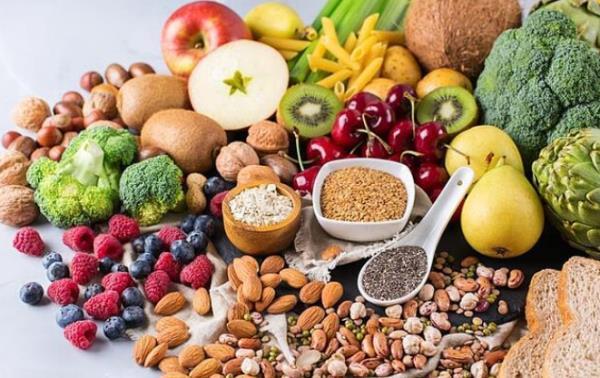Plant protein production is enough to feed the world's population
Netherlands (the)
Tuesday 28 June 2022
FJ
Legumes, cereals, nuts, fruits and vegetables, the key elements for a plant-based diet rich in vegetable proteins (Photo: onpoint-nutrition.com).
The amount of plant protein available is more than enough to feed the world's population, according to a scientist from WUR (Wageningen University Research). Stopping the consumption of meat, for which half of vegetable protein is currently used, would release vegetable protein for human consumption.
Dr Stacy Pyett, head of the 'Proteins for Life' program at WUR (Wageningen University Research), studies the protein transition that includes a shift to more plant-based diets in high-income countries.
According to its study based on data from the FAO, the World Food Organization, in 2018 about 630 million tons of protein were produced in the world in 2018: 109 million tons of animal protein and 520 million tons vegetable proteins. About half of plant protein has been transformed into animal food and could be available for human consumption if a plant-based diet is adopted by all earthlings.
The WHO (World Health Organization) has quantified protein requirements at 50 to 60 g/per day/adult. Which means that the 8 billion people on Earth need to eat 172 million tons of protein every year to stay healthy. If all earthlings consume like the Dutch (79gr/day/per adult) the needs are 227 million tons of protein on a global scale.
The global availability of vegetable proteins would therefore be more than sufficient to meet the global protein requirement (227 million tonnes).
In addition, plant-based diets require only 0.12 hectares of agricultural land per person per year, compared to 0.17 hectares for the current diet. Thus, agricultural land requirements are around -30% with an entirely plant-based diet.
source : wur.nl





